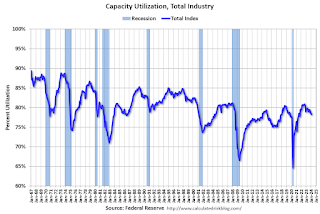Uncategorized
Indian state governments spur blockchain adoption in public administration
Numerous initiatives by local and state governments in India — from data management systems to verifiable certificate issuances — currently use blockchain…

Numerous initiatives by local and state governments in India — from data management systems to verifiable certificate issuances — currently use blockchain technology.
Ever since Bitcoin (BTC) popularized blockchain technology worldwide, the tech has found its way into myriad processes, from finance to public administration.
What started as a flex statement for early adopters has now become a way of revamping legacy systems and improving immutability, transparency and decentralization.
Despite its proven real-world use cases, most government agencies continue to take a cautious approach to adopting and infusing blockchain into their paper-based processes, given its predominant link to the cryptocurrency ecosystem.
However, a change of heart is underway as emerging economies see blockchain as a rare opportunity to establish a trust-based system for society.
While still reluctant to legitimize cryptocurrencies fully, India has generally accepted blockchain technology.
Numerous initiatives by local and state governments in India — ranging from data management systems to verifiable certificate issuances — currently use blockchain technology at their core.
India’s expedited blockchain adoption is supported by an active developer and startup community, which builds custom solutions to tackle specific use cases.
Cointelegraph’s pursuit to decipher India’s affinity for blockchain led to a conversation with Ankur Rakhi Sinha, the co-founder and CEO of Airchains, a Web3 startup focused on a middleware software-as-a-service (SaaS) platform.
Speaking to Cointelegraph, Ankur explained India’s massive appetite for blockchain and how elected leaders have been driving the change.
Cointelegraph: What is the primary driver behind India’s blockchain adoption spree?
Ankur Rakhi Sinha: The driving force behind India’s blockchain adoption is the multitude of benefits it offers to enterprises and institutions. Within their ecosystems, organizations recognize the immense benefits of incorporating blockchain technology. It addresses various challenges at different levels, such as enhancing transparency, traceability and establishing trust.
These factors contribute to the growing interest and widespread adoption of blockchain within India.
India is one of the fastest-growing blockchain markets globally, with over 56% of Indian businesses reporting an inclination toward adopting blockchain technology. With a developer base of a whopping 10 million, the Indian talent pool has been recognized globally by leading Web3 firms with the aim of fostering Web3 innovation and growth.
CT: In your discussions with the government agencies, are there any talks of crypto adoption?
ARS: No, currently, regulatory clearances surrounding cryptocurrency adoption are still uncertain. However, government agencies are actively exploring various avenues and seeking improved regulations. They are open to the idea and are diligently working toward creating a conducive environment for cryptocurrency adoption.
CT: Can you share any data and/or use cases that show improvements from older systems?
ARS: Yes, our recent collaboration with the New Town Kolkata Development Authority (NKDA) showcases the real-life adoption of blockchain. With a vast expanse of 27,000 acres of land and a staggering 50,000 NFTs [nonfungible tokens] representing one million ownerships, the NKDA’s adoption of NFTs for land mutation [the transfer of property titles] has revolutionized the traditional approach, and these initiatives demonstrate the growing recognition and commitment to harnessing the potential of blockchain to drive innovation and efficiency across various sectors.
Recent: Latvia central bank opens to fintech with ‘Innovation Hub’
CT: Is India betting big on blockchain? Are there any government initiatives that help drive this cause?
ARS: Yes, India is definitely betting big on blockchain. Various government agencies and bodies within India are actively seeking to collaborate with blockchain solutions. While there is yet to be a high-level blockchain initiative from the government of India thus far, there is a strong demand from government entities that Airchains is actively addressing. One of the profound use cases of blockchain adoption includes the remarkable first-ever NFT-based land mutation in India.

Additionally, in January 2020, NITI Aayog’s two-part report titled “Blockchain: The India Strategy” made it apparent that while regulations regarding cryptocurrencies and other digital assets are under consideration, the government is significantly aware of the promise of core blockchain technology to transform various systems.
Several Indian government bodies are supportive of blockchain technology adoption and have collaborated with Airchains to incorporate novel blockchain-based systems ensuring accountability and security. The Raigarh District Authority has collaborated with us to create a blockchain-based tree plantation monitoring system for the betterment of CSR [corporate social responsibility] initiatives, whereas the Firozabad Police Department worked with us to create a blockchain complaint management system to prevent tampering of reports.
CT: What type of understanding do Indian officials have about blockchain and associated tech?
ARS: Indian government agencies, state governments and bureaucrats possess a profound understanding of blockchain and Web3 technologies. They are well-versed in the latest developments and trends within the blockchain space, including liquidity, private chains and zero-knowledge rollups. [...] Their comprehension of blockchain extends beyond surface-level knowledge, as many officials have in-depth insights into how the technology functions. While some officials contemplate how blockchain should ideally operate, others are actively exploring ways to leverage this technology to address their unique challenges.
CT: What is the role of blockchain in India’s overall growth?
ARS: Blockchain technology is poised to play a huge role in India’s future growth, propelling the nation to a prominent position on the global stage. The increasing number of developers, enterprises and institutional use cases emerging in India underscores the significant growth potential of blockchain in the country. As blockchain adoption continues to expand, it is expected to drive innovation, foster economic development and create new opportunities across various sectors.
Another key push to India’s growth has been the entry of various global Web3 players into the Indian developer market. India is home to 450+ Web3 startups and has received over $1.5 billion in investments between 2021 and 2022, according to a 2022 NASSCOM Indian Web3 Landscape Analysis report.

Additionally, the report also highlighted that 11% of global Web3 talent is in India, making it third worldwide. Blockchain in India has the potential to contribute significantly due to the vast developer talent and the active Web3 community present in the country.
CT: We have seen numerous instances of state-wide blockchain implementations over the past three years. Are there any nationwide implementations of blockchain in India or any such plans for the future?
ARS: Yes, there have been significant discussions at various levels regarding nationwide blockchain implementations in India. For instance, organizations such as the National Payments Corporation of India and the Unified Payments Interface are exploring the potential of blockchain technology and conducting tests. Public sector banks are also actively experimenting with blockchain to determine how they can harness its capabilities.
These initiatives indicate a strong likelihood of nationwide blockchain use cases emerging in the near future. Airchains recently executed a state-wise use case with NKDA, and we are currently working on multiple state-level use cases that have the potential to impact the nation as a whole.
CT: How do you convince a government body to accept a new system?
ARS: Government [...] bodies are actively interested in adopting blockchain solutions to address their specific challenges. However, they emphasize the importance of operating within regulatory frameworks. Demonstrating transparency, efficiency and improved outcomes is key to gaining government support in the development journey.
CT: Which countries are ahead of India when it comes to wide-scale blockchain adoption? What measures must a country take to expedite blockchain adoption?
ARS: There are several countries in Central America that are actively pursuing wide-scale blockchain adoption within their ecosystems. India, being a large nation, is actively striving to accelerate the adoption of blockchain technology through numerous use cases. The country has established itself as a center of excellence in blockchain, with multiple agencies exploring various applications.
To expedite progress, implementing clear regulations is crucial. This includes defining guidelines for blockchain implementation and determining permissible use cases, which will facilitate faster execution and broader adoption.
CT: Can home-grown blockchain technology be used in off-shore use cases?
ARS: Many projects originating from India, such as Polygon and various layer-1 and layer-2 solutions, have gained global recognition. Airchains has also successfully collaborated with government agencies globally, including in Central America and Europe. Currently, there are several offshore projects in the pipeline for Airchains, scheduled to be completed within the next six to seven months. Utilizing home-grown blockchain technology for offshore use cases is indeed a goal being pursued.
Magazine: Are DAOs overhyped and unworkable? Lessons from the front lines
CT: How does funding work? What are your investors looking for?
ARS: Investors primarily seek scalability and feasibility in blockchain adoption, among other key factors. Funding in the blockchain space typically involves investors who believe in the potential of the technology and its ability to bring about transformative changes.
CT: What is your advice to fellow blockchain entrepreneurs in India?
ARS: My advice [...] is to focus on building a wide range of use cases and driving blockchain adoption to a higher scale. By creating innovative solutions and demonstrating the real-world benefits of blockchain technology, we can accelerate its adoption and drive positive change in various industries.
Collect this article as an NFT to preserve this moment in history and show your support for independent journalism in the crypto space.
cryptocurrency bitcoin blockchain crypto btc link cryptoUncategorized
One city held a mass passport-getting event
A New Orleans congressman organized a way for people to apply for their passports en masse.

While the number of Americans who do not have a passport has dropped steadily from more than 80% in 1990 to just over 50% now, a lack of knowledge around passport requirements still keeps a significant portion of the population away from international travel.
Over the four years that passed since the start of covid-19, passport offices have also been dealing with significant backlog due to the high numbers of people who were looking to get a passport post-pandemic.
Related: Here is why it is (still) taking forever to get a passport
To deal with these concurrent issues, the U.S. State Department recently held a mass passport-getting event in the city of New Orleans. Called the "Passport Acceptance Event," the gathering was held at a local auditorium and invited residents of Louisiana’s 2nd Congressional District to complete a passport application on-site with the help of staff and government workers.
'Come apply for your passport, no appointment is required'
"Hey #LA02," Rep. Troy A. Carter Sr. (D-LA), whose office co-hosted the event alongside the city of New Orleans, wrote to his followers on Instagram (META) . "My office is providing passport services at our #PassportAcceptance event. Come apply for your passport, no appointment is required."
More Travel:
- A new travel term is taking over the internet (and reaching airlines and hotels)
- The 10 best airline stocks to buy now
- Airlines see a new kind of traveler at the front of the plane
The event was held on March 14 from 10 a.m. to 1 p.m. While it was designed for those who are already eligible for U.S. citizenship rather than as a way to help non-citizens with immigration questions, it helped those completing the application for the first time fill out forms and make sure they have the photographs and identity documents they need. The passport offices in New Orleans where one would normally have to bring already-completed forms have also been dealing with lines and would require one to book spots weeks in advance.
These are the countries with the highest-ranking passports in 2024
According to Carter Sr.'s communications team, those who submitted their passport application at the event also received expedited processing of two to three weeks (according to the State Department's website, times for regular processing are currently six to eight weeks).
While Carter Sr.'s office has not released the numbers of people who applied for a passport on March 14, photos from the event show that many took advantage of the opportunity to apply for a passport in a group setting and get expedited processing.
Every couple of months, a new ranking agency puts together a list of the most and least powerful passports in the world based on factors such as visa-free travel and opportunities for cross-border business.
In January, global citizenship and financial advisory firm Arton Capital identified United Arab Emirates as having the most powerful passport in 2024. While the United States topped the list of one such ranking in 2014, worsening relations with a number of countries as well as stricter immigration rules even as other countries have taken strides to create opportunities for investors and digital nomads caused the American passport to slip in recent years.
A UAE passport grants holders visa-free or visa-on-arrival access to 180 of the world’s 198 countries (this calculation includes disputed territories such as Kosovo and Western Sahara) while Americans currently have the same access to 151 countries.
stocks pandemic covid-19 grantsUncategorized
Fast-food chain closes restaurants after Chapter 11 bankruptcy
Several major fast-food chains recently have struggled to keep restaurants open.

Competition in the fast-food space has been brutal as operators deal with inflation, consumers who are worried about the economy and their jobs and, in recent months, the falling cost of eating at home.
Add in that many fast-food chains took on more debt during the covid pandemic and that labor costs are rising, and you have a perfect storm of problems.
It's a situation where Restaurant Brands International (QSR) has suffered as much as any company.
Related: Wendy's menu drops a fan favorite item, adds something new
Three major Burger King franchise operators filed for bankruptcy in 2023, and the chain saw hundreds of stores close. It also saw multiple Popeyes franchisees move into bankruptcy, with dozens of locations closing.
RBI also stepped in and purchased one of its key franchisees.
"Carrols is the largest Burger King franchisee in the United States today, operating 1,022 Burger King restaurants in 23 states that generated approximately $1.8 billion of system sales during the 12 months ended Sept. 30, 2023," RBI said in a news release. Carrols also owns and operates 60 Popeyes restaurants in six states."
The multichain company made the move after two of its large franchisees, Premier Kings and Meridian, saw multiple locations not purchased when they reached auction after Chapter 11 bankruptcy filings. In that case, RBI bought select locations but allowed others to close.
Image source: Chen Jianli/Xinhua via Getty
Another fast-food chain faces bankruptcy problems
Bojangles may not be as big a name as Burger King or Popeye's, but it's a popular chain with more than 800 restaurants in eight states.
"Bojangles is a Carolina-born restaurant chain specializing in craveable Southern chicken, biscuits and tea made fresh daily from real recipes, and with a friendly smile," the chain says on its website. "Founded in 1977 as a single location in Charlotte, our beloved brand continues to grow nationwide."
Like RBI, Bojangles uses a franchise model, which makes it dependent on the financial health of its operators. The company ultimately saw all its Maryland locations close due to the financial situation of one of its franchisees.
Unlike. RBI, Bojangles is not public — it was taken private by Durational Capital Management LP and Jordan Co. in 2018 — which means the company does not disclose its financial information to the public.
That makes it hard to know whether overall softness for the brand contributed to the chain seeing its five Maryland locations after a Chapter 11 bankruptcy filing.
Bojangles has a messy bankruptcy situation
Even though the locations still appear on the Bojangles website, they have been shuttered since late 2023. The locations were operated by Salim Kakakhail and Yavir Akbar Durranni. The partners operated under a variety of LLCs, including ABS Network, according to local news channel WUSA9.
The station reported that the owners face a state investigation over complaints of wage theft and fraudulent W2s. In November Durranni and ABS Network filed for bankruptcy in New Jersey, WUSA9 reported.
"Not only do former employees say these men owe them money, WUSA9 learned the former owners owe the state, too, and have over $69,000 in back property taxes."
Former employees also say that the restaurant would regularly purchase fried chicken from Popeyes and Safeway when it ran out in their stores, the station reported.
Bojangles sent the station a comment on the situation.
"The franchisee is no longer in the Bojangles system," the company said. "However, it is important to note in your coverage that franchisees are independent business owners who are licensed to operate a brand but have autonomy over many aspects of their business, including hiring employees and payroll responsibilities."
Kakakhail and Durranni did not respond to multiple requests for comment from WUSA9.
bankruptcy pandemicUncategorized
Industrial Production Increased 0.1% in February
From the Fed: Industrial Production and Capacity Utilization
Industrial production edged up 0.1 percent in February after declining 0.5 percent in January. In February, the output of manufacturing rose 0.8 percent and the index for mining climbed 2.2 p…

Industrial production edged up 0.1 percent in February after declining 0.5 percent in January. In February, the output of manufacturing rose 0.8 percent and the index for mining climbed 2.2 percent. Both gains partly reflected recoveries from weather-related declines in January. The index for utilities fell 7.5 percent in February because of warmer-than-typical temperatures. At 102.3 percent of its 2017 average, total industrial production in February was 0.2 percent below its year-earlier level. Capacity utilization for the industrial sector remained at 78.3 percent in February, a rate that is 1.3 percentage points below its long-run (1972–2023) average.Click on graph for larger image.
emphasis added
This graph shows Capacity Utilization. This series is up from the record low set in April 2020, and above the level in February 2020 (pre-pandemic).
Capacity utilization at 78.3% is 1.3% below the average from 1972 to 2022. This was below consensus expectations.
Note: y-axis doesn't start at zero to better show the change.
 The second graph shows industrial production since 1967.
The second graph shows industrial production since 1967.Industrial production increased to 102.3. This is above the pre-pandemic level.
Industrial production was above consensus expectations.
-

 Uncategorized3 weeks ago
Uncategorized3 weeks agoAll Of The Elements Are In Place For An Economic Crisis Of Staggering Proportions
-

 International1 week ago
International1 week agoEyePoint poaches medical chief from Apellis; Sandoz CFO, longtime BioNTech exec to retire
-

 Uncategorized4 weeks ago
Uncategorized4 weeks agoCalifornia Counties Could Be Forced To Pay $300 Million To Cover COVID-Era Program
-

 Uncategorized3 weeks ago
Uncategorized3 weeks agoApparel Retailer Express Moving Toward Bankruptcy
-

 Uncategorized4 weeks ago
Uncategorized4 weeks agoIndustrial Production Decreased 0.1% in January
-

 International1 week ago
International1 week agoWalmart launches clever answer to Target’s new membership program
-

 Spread & Containment3 days ago
Spread & Containment3 days agoIFM’s Hat Trick and Reflections On Option-To-Buy M&A
-

 Uncategorized4 weeks ago
Uncategorized4 weeks agoRFK Jr: The Wuhan Cover-Up & The Rise Of The Biowarfare-Industrial Complex



















